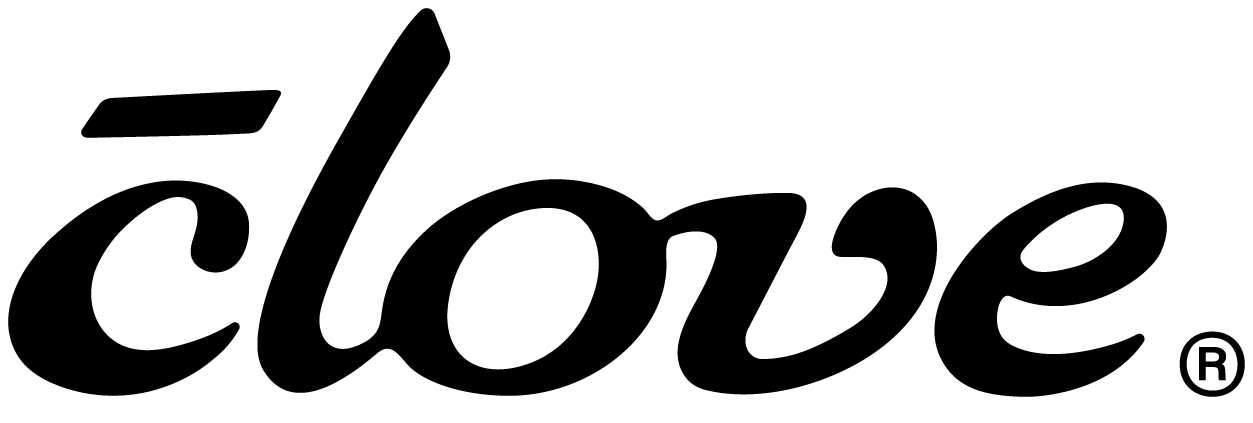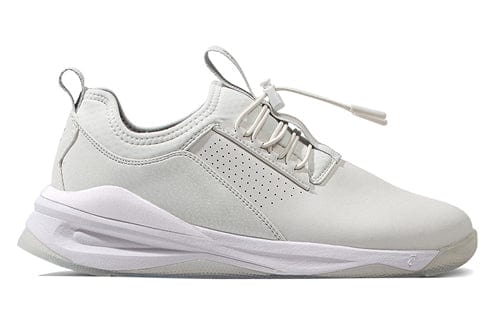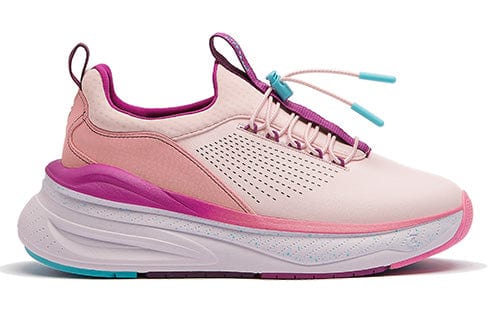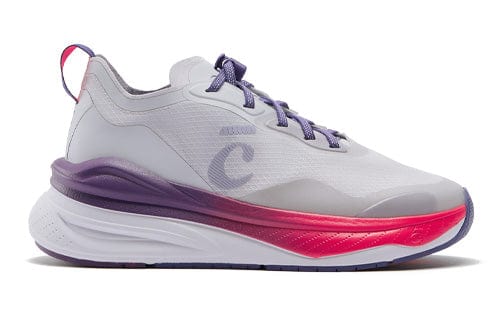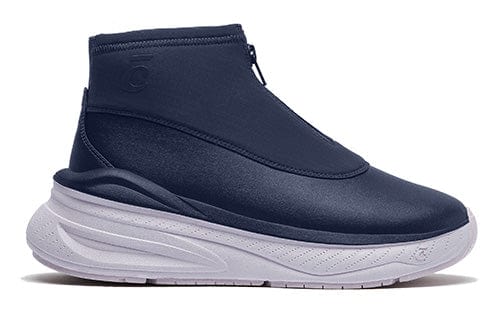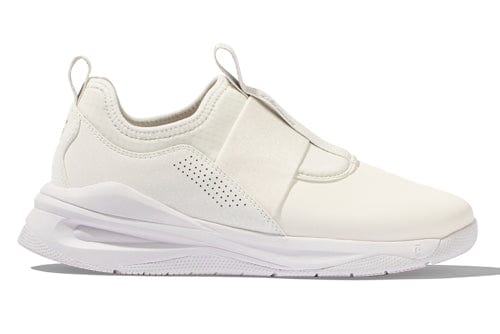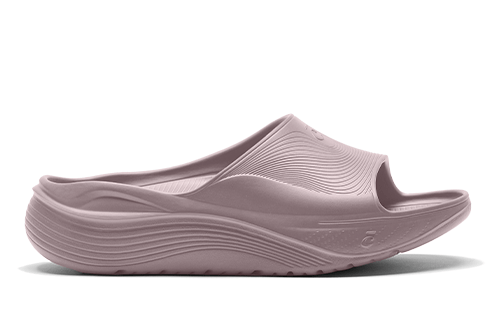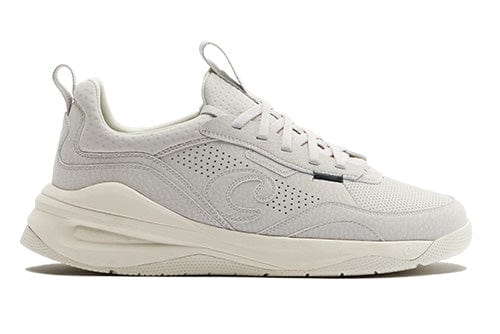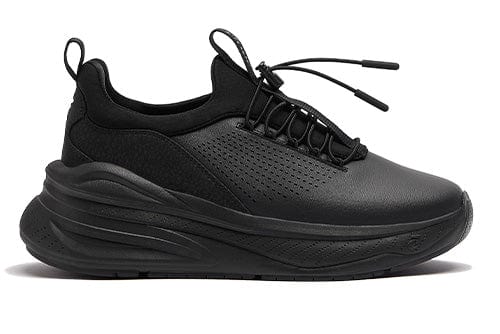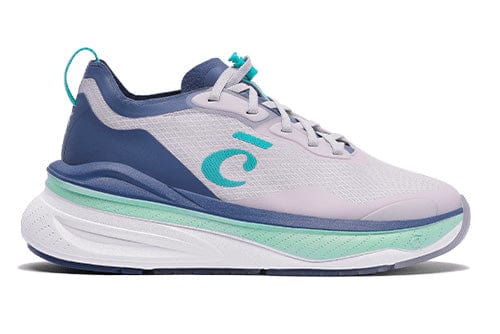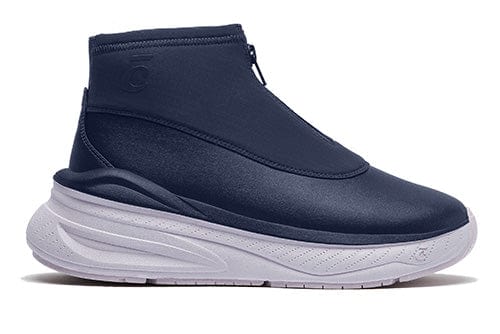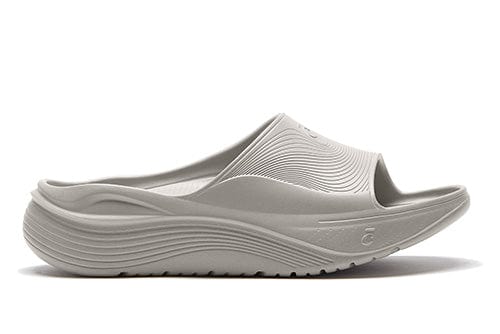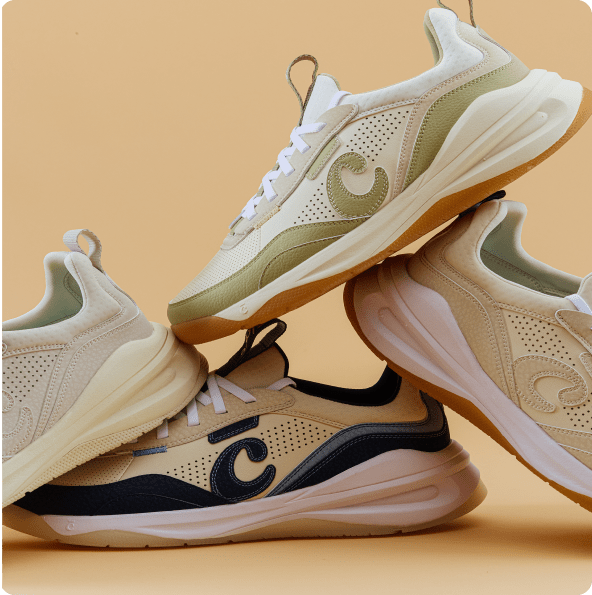Black History Month: Portraits of Black Voices
We’re stepping into Black History Month’s call to remembrance and reflection by partnering with @justenwilliams, a musician-turned-photographer who connects, unites, and uplifts his community with his art. During COVID-19, Justen began a project to highlight the frontline workers throughout New Orleans who were continuously risking their health and safety to keep us safe.
As a continuation of that project with Clove, we provided Justen’s community our platform as a space to amplify their voices and thoughts about Black History Month as Black healthcare professionals — and supporting their steps with Clove healthcare shoes, of course. We are so honored to feature our community in this way and to be working with an artist as talented and thoughtful as Justen.
#YouSupportThem
#WeSupportYou
Portraits of Black Voices
To celebrate Black History Month #WithLove, we’re spotlighting Black voices in healthcare who are making waves in their communities in partnership with talented musician-turned-photographer @justenwilliams.
Meet @doc.flanagan:
Dr. Donté A. Flanagan, Nurse Anesthetist-CRNA, inspires the next generation of medical students by providing encouraging knowledge and genuine resources through the Dream Big Mentorship Program. From career development strategies to sharing cultural experiences, Doc Flanagan pioneers growth opportunities based on advocacy and equity for people of color and the underrepresented.
Dr. Donté A. Flanagan, Nurse Anesthetist-CRNA, inspires the next generation of medical students by providing encouraging knowledge and genuine resources through the Dream Big Mentorship Program. From career development strategies to sharing cultural experiences, Doc Flanagan pioneers growth opportunities based on advocacy and equity for people of color and the underrepresented.
What does Black History Month signify for you?
- It’s a call for intentional reflection. As my family and I look towards what our ancestors have done and how we can push that needle forward, Black History Month is a great springboard to conversations to acknowledge and become aware of the Black community’s impact on this country.
How are you as a Black healthcare professional right now?
- I am secure and confident in who I am. When you go through the Black healthcare professional experience, as you keep going higher and there’s less of you around, you begin to develop imposter syndromes and ask, “Do I belong here? How much do I have to keep proving of myself to know that I belong here?” We go through this as a collective, and once you realize you don’t have to do that anymore, that freedom is liberating. I know what I bring to the table and that my interactions with patients are different — and that’s a plus. Also, in the midst of this pandemic, I can use my voice to bring others to acknowledge the disparities that are going on because I am confident in my expertise.
Is there a Black historical figure that is currently inspiring you?
- Baldwin. He lucidly wrote about what it’s like to be placed on a pedestal by the white community and vividly described the stressors and nuances of being Black in America. He was a Black gay man and historians posit his intersectional identities, which in part, allowed him to analyze the world around him clearly, as he did not fit in. From reading his work, it’s clear he was fully present in all of his complexity, and for me, as a cis gendered, heterosexual Black man in a white female dominated career, I’m inspired by him to be my authentic self in all of my complexities.
What do you want to say to the next generation?
- Lean into your individuality, being different, curiosity, and dreaming big. Healthcare wise, imagine a better life for everyone around you — without disease and suffering. As you do that, take the steps to create that reality. It all starts by being curious and asking questions.
Meet: Devinn Rolland, Pharm.D., RPh @itsdevdev
New Orleans based pharmacist, Devinn Rolland dives in with Clove on her Black History Month reflections and words for the next generation.
What does Black History Month mean to you?
- It’s a time when we can celebrate Black people — what we’ve gone through, the strides we’re making every day, and highlighting those before me who have endured much bigger struggles. For me, it means representing everyone in my community — my ancestors, upholding their standards, and continuing to carry on their legacy.
What’s your experience as a Black female pharmacist?
- It’s tough. Although our job is difficult and there are moments when we feel underappreciated, we know that our work is necessary and important. It’s rewarding to know that when people go to their doctor, get their diagnosis, and are prescribed medication, they need us so we can get them the medication they need. People get frustrated when we call them all the time but there’s always a reason: we need to ensure that people are picking up their medicine and taking it as directed so we can optimize health outcomes.
Do you have any advice for the younger generation?
- My advice is always to go for it. Don’t let anything hold you back from what you want to do — it may seem tough, but once you’re in it and doing it, it’ll go by in the blink of an eye. Don’t let anyone ever tell you that you can’t do something because you can, it’s always possible.
Is there anything you want to say to your community?
- In New Orleans, I would say we’re still having issues with people going out and not social distancing. Please follow your local guidelines and mask up. Also, I know there’s a lot of stigma in the Black community surrounding the COVID-19 vaccine. People are wary of the pharmaceutical industry but we need to give it a chance. We need to get vaccinated and fight the virus the best way we can. I myself got the vaccine last week and am doing perfectly fine. When it’s your time, go get vaccinated.
Meet: Dr. Kai Mounkaila H. PT, DPT, FMT-C
Coming to New York from Africa at age 17, Dr. Kai Mounkaila H. is now a New Orleans based physical therapist. Step into Dr. Mounkaila’s reflections on being in the healthcare space, his inspirations, and thoughts for the future generations.
What is your experience as a Black physical therapist?
- The Black community tends to open up more if they can relate or have something in common with you. I can see a change in mood, outlook, and participation just because there is a sense of comfort that some patients have when they come to see me. As a Black physical therapist, I can detect that difference in environment and temperature that allows for my patients to open up about something that may be bothering them, or what might hinder their recovery process honestly.
How were you inspired to enter the healthcare space
- Ever since I was little, I would watch sports and think, “I want to be the doctor that takes care of those athletes.” The idea of sports medicine came mainly from my father — he was athletic, taught Physical Education, and coached track and field. He retired from my country’s athletic association following the Olympics in 2000, and was the head coach of my country’s Track and Field team. Helping solidify my interest in sports rehab, I went to college on the pre-med biology track and did cancer research for three years. During my graduate school applications, I actually applied for physical therapy to one out of eight schools. That was the only school that replied on time for me to start the fall semester, which brought me back to what I actually wanted to do from a young age.
What kept you going throughout the obstacles in medicine?
- Family support. It’s hard to thrive and become successful without a support system that pushes and watches over you. If it weren’t for my family, I would have never made it this far. My family was there when I needed to vent or do whatever I needed to feel comfortable.
What would you say to the future generation navigating through medicine?
- In Africa, I used to walk 2-3 miles to go to school, walk home for lunch, and go back to school in the evening. In America, when you have a bus and lunches at school, you are able to focus more on your studies. In my case as a dual citizen, the most important thing that kept me going was knowing where I came from. We were really fortunate because my mother grew up in a hut with a family of 10, and she still managed to make it to the United States and eventually bring her whole family here. I feel like this country has opportunities and you need inspiration, support, and perspective to stay grounded and become successful.
Meet: Angell Luter, N.P.
Starting off her career in the Neuro ICU, Angell is now a Nurse Practitioner with a focus on stroke patients. Step into Angell’s spotlight as she shares her motivations, passions outside the hospital, and her reflections during this month.
What does Black History Month as a female healthcare professional mean to you?
- I’m so proud of it! As medical professionals are from many different cultures and backgrounds, I try to raise awareness of Black culture and what we go through because it’s a lot to be in our shoes. To make others aware means the most to me as they can further educate their friends and family, and have that effect grow on.
What is your advice for the next generation?
- Something I would tell my younger self is that I know it’s hard, but just keep going. We have to work ten times harder just to be on the same line as others, which is unfortunate but true. It’s a harsh reality, but that’s what gives you the drive and motivation that makes you and your family that much more proud to be in the position that you’ve worked towards. Keep going!
What has it been like for you during the pandemic?
- It was terrifying at first, but it has now unfortunately become a norm. It’s hard to gown and gear up before I step into the COVID unit, and then come back home to my family knowing that I may be exposing them to certain things that wouldn’t be the case if I had a different type of job. But they understand that this is what I love to do and how I help others, so that brings everyone comfort at the end of the day.
What are your passions outside of the hospital?
- I love NOLA culture, so festivals are my thing. I love to be at a great festival with my family — we love to be tourists in our own city because there’s no other place like New Orleans.
Meet: Jenna Deemer, Nursing Student
A previous athlete now taking on a path in healthcare through an accelerated nursing program, Jenna is a nursing student who enters into the trauma ICU for total care during her clinicals. Step into Jenna’s experiences, her words for the next generation, and more!
Does your experience as an athlete affect your role in healthcare?
- The characteristics that I’ve built as an athlete definitely helps me as a nursing student — time management and being punctual all translates from the court to the hospital. I recently wrote a paper on the philosophy of nursing and closely related it to coaching; leading a team while showcasing everyone’s individual strengths is an important factor for me in both of my philosophies in nursing and sports.
How is your experience as a Black female in the healthcare environment?
- Working in the ICU, there is a huge ratio difference between Black patients and Black healthcare professionals. Because of this, I often see conflict in communication and less comfortability. I’m really excited about this career path for that reason — just being a familiar face to some of these patients may ease anxiety and promote better patient care.
What is something you want to say to the future generation?
- We NEED you! In all aspects, we need you to continue to ignite change and equalize the playing field. It’s a big world and although we do have the opportunities to grow and speak, we cannot be afraid to take things to the next level.
Meet: Cydney Ancar Moret, Physical Therapist Assistant
Step into Cydney’s experience as a healthcare professional during the pandemic, her advice for the next generation, and her post-pandemic aspirations!
How has it been as a healthcare professional during the pandemic?
- I was stationed in acute care when the pandemic hit after normally doing outpatient physical therapy, working in the hospital, home health, and rehab. We had a lot of patients but weren’t allowing any visitors, which made me take a step back and reflect on how I had the freedom to go home and see my family. It made me interact with my patients even more because they didn’t have a lot of company.
What is your experience as a Black female healthcare professional?
- You don’t see many of us. Sometimes you walk into a clinic and can count on one hand how many Black healthcare workers there are. It’s a challenge because you want people to know that you’re just as educated as anyone else — but, I’ve been fortunate enough to work where they have really implemented culture and even did a focus on Black History Month and Lunar New Year.
Is there something you would want to say to the next generation?
- Don’t let the challenges get the best of you! You’re always going to have people doubt your success, but you can’t let that define you. Keep moving, keep pushing forward, and don’t let the difficulties get you down. You will overcome.
What is something you’re looking forward to post-pandemic?
- To travel freely without the fear and anxiety. I really want to take my son to Jamaica — once everything is over, I’m hoping we can take him to more places as he’s been stuck inside for so long!
To celebrate Black History Month #WithLove, we’re spotlighting Black voices in healthcare who are making waves in their communities. Follow along for more updates on Clove's Partnerships, doing our part to amplify Black voices in the Healthcare community.
